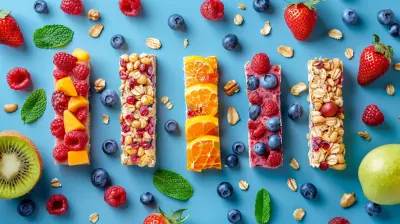How to Create a Balanced Diet for Hormone Health
9 October 2025
Let’s face it—your hormones are the unsung heroes (or villains) of your everyday life. They run a tight ship behind the scenes, making sure your mood, metabolism, energy levels, sex drive, and even your skin are all working like a well-oiled machine. But when things go off track? Whew! It can feel like your body is staging a full-blown mutiny.
So, how do you keep these microscopic managers happy? You guessed it—your diet. (Put that donut down. We need to talk.)
In this guide, we're diving fork-first into how to create a balanced diet for hormone health. Whether you’re dealing with PMS, fatigue, mood swings, acne, or just want to feel more like Beyoncé and less like a potato, this article has got your back.
Let’s channel our inner health nerd and get cookin’—literally.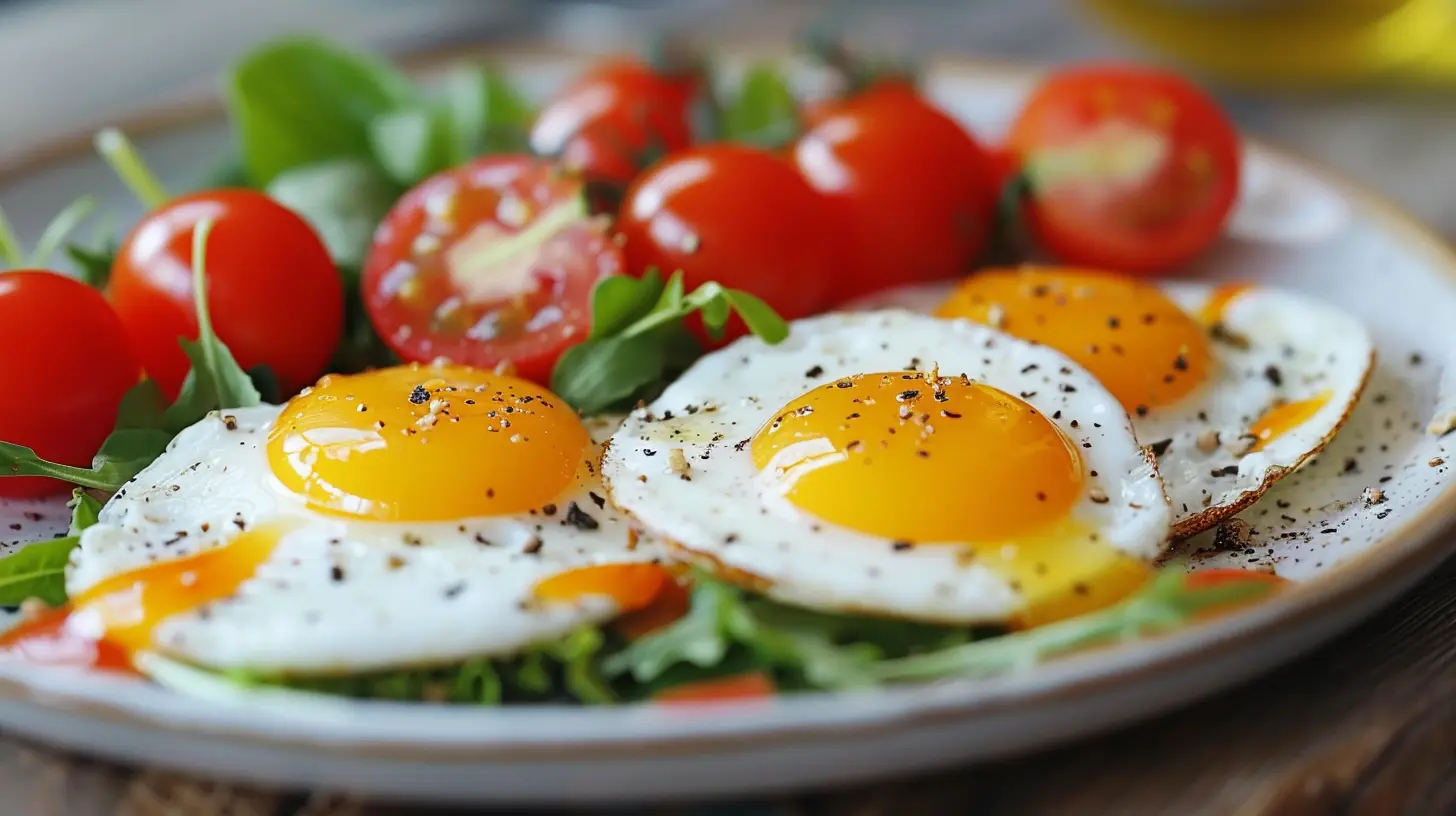
Why Hormones Deserve a Standing Ovation
Before we dive into what to eat, let’s give credit where credit’s due. Hormones are chemical messengers that help regulate nearly every function in your body. Think of them as the text messages your organs send to each other. When things are functioning normally, these messages are clear, consistent, and on time.But when your hormones are out of balance—due to stress, poor diet, lack of sleep, or, frankly, being human—it can lead to:
- Weight gain
- Brain fog
- Mood swings (cue dramatic crying over commercials)
- Acne
- Menstrual irregularities
- Low libido
- Sleep troubles
Sound familiar? Don’t stress—we’ve all been there. The good news? You have way more control over your hormone health than you may think, and it starts with what you put on your plate.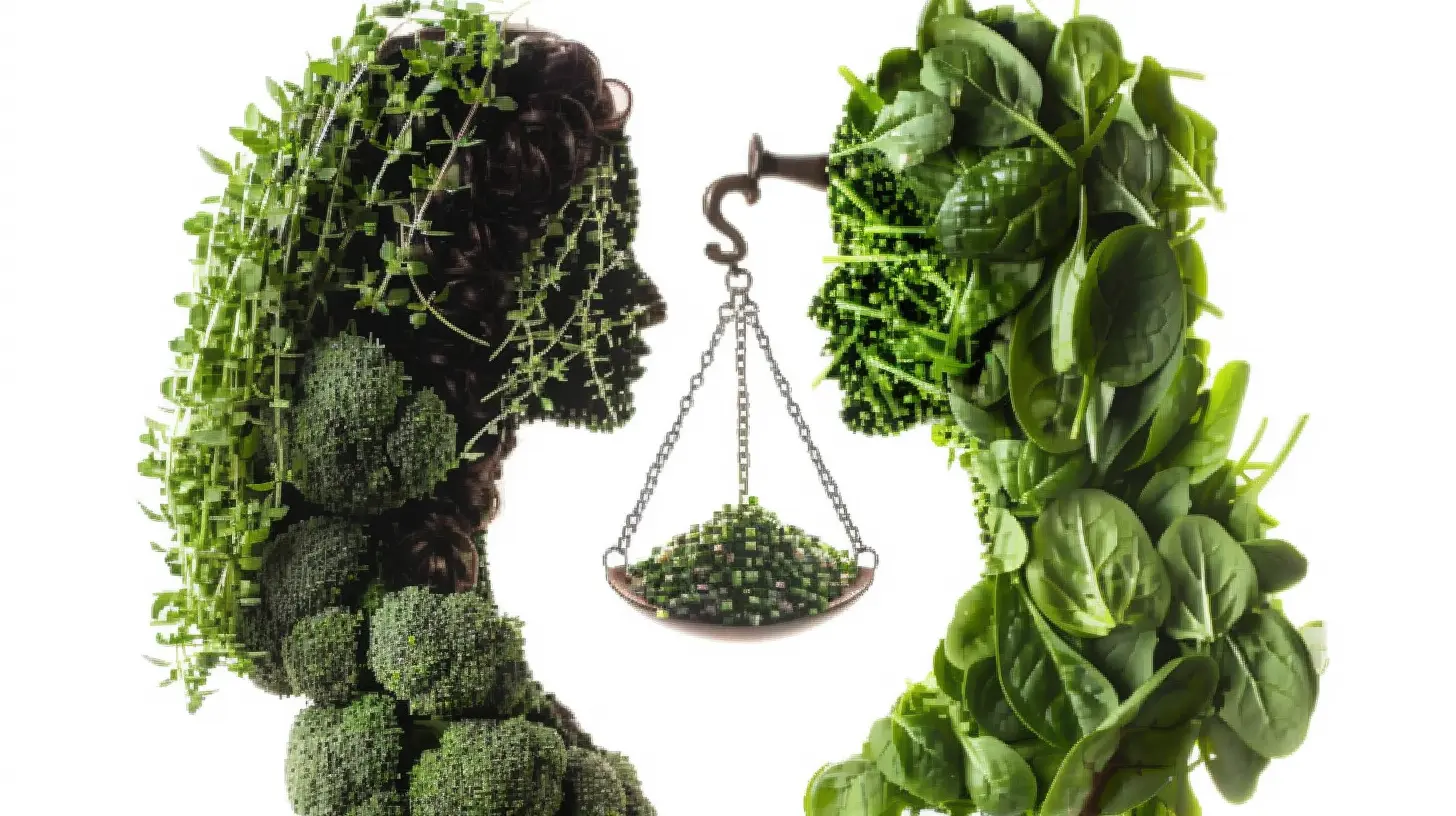
The Golden Rule: Balance Is Everything
When we talk about a balanced diet for hormone health, we’re not talking about eating clean 24/7 or kissing carbs goodbye like it’s a bad rom-com break-up.Balance means making sure you’re getting the right mix of:
- Proteins
- Healthy fats
- Complex carbs
- Phytonutrients
- Micronutrients (think vitamins and minerals)
Each plays a unique role in supporting your hormone orchestra, and if one instrument is out of tune, the whole song sounds off.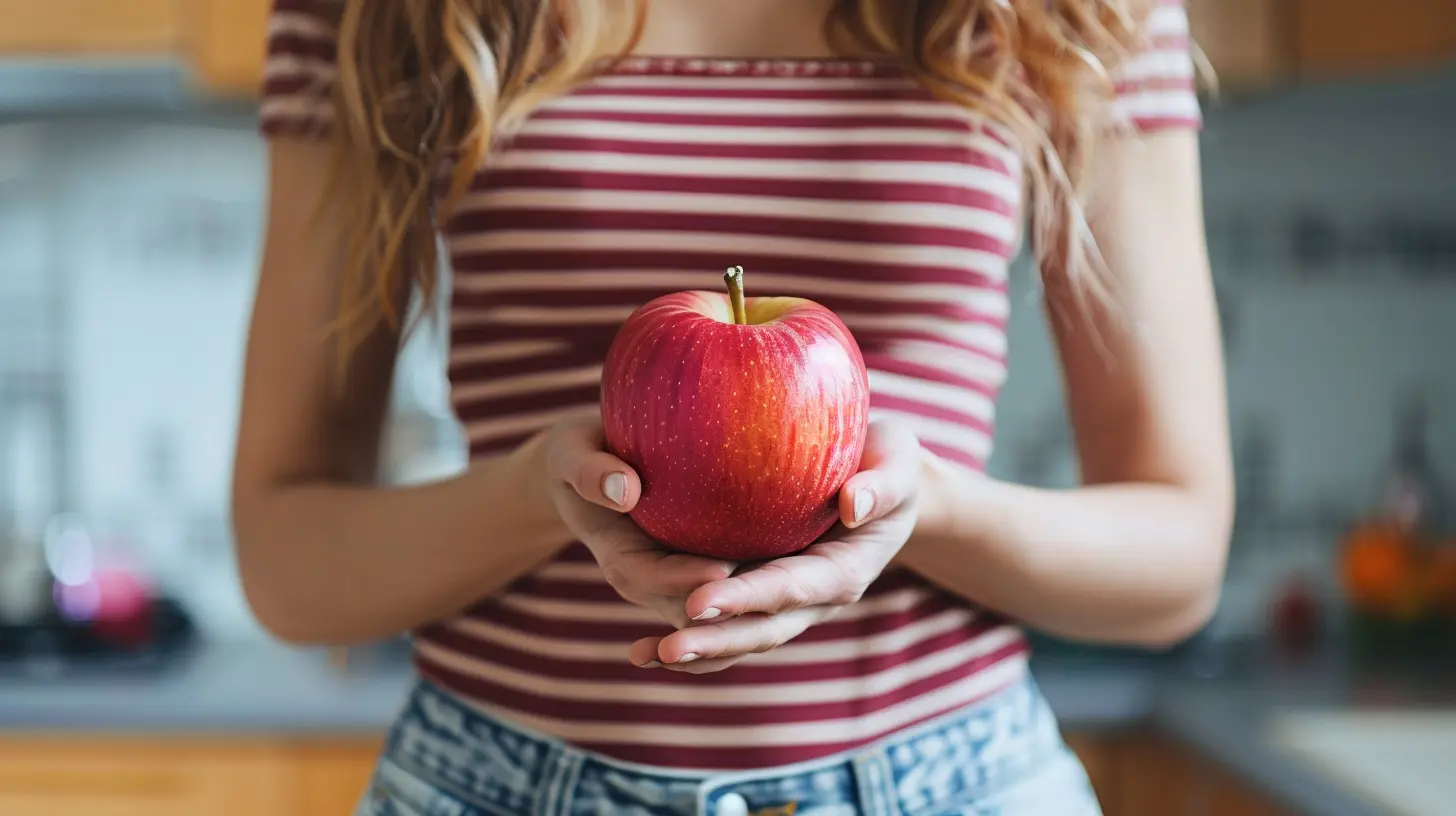
1. Prioritize Whole, Nutrient-Dense Foods
This is the foundation. Your hormones are picky eaters, and they thrive on high-quality, unprocessed foods. We're talking:- Leafy greens (spinach, kale, arugula)
- Colorful veggies (the more colors, the better)
- Whole grains (quinoa, oats, brown rice)
- Nuts and seeds (chia, flax, almonds, pumpkin seeds)
- Lean proteins (eggs, organic chicken, wild-caught fish)
- Fruits (especially berries and citrus)
- Healthy fats (avocados, olive oil, fatty fish)
Think of your meals as building blocks. The higher the nutrient content, the sturdier the structure.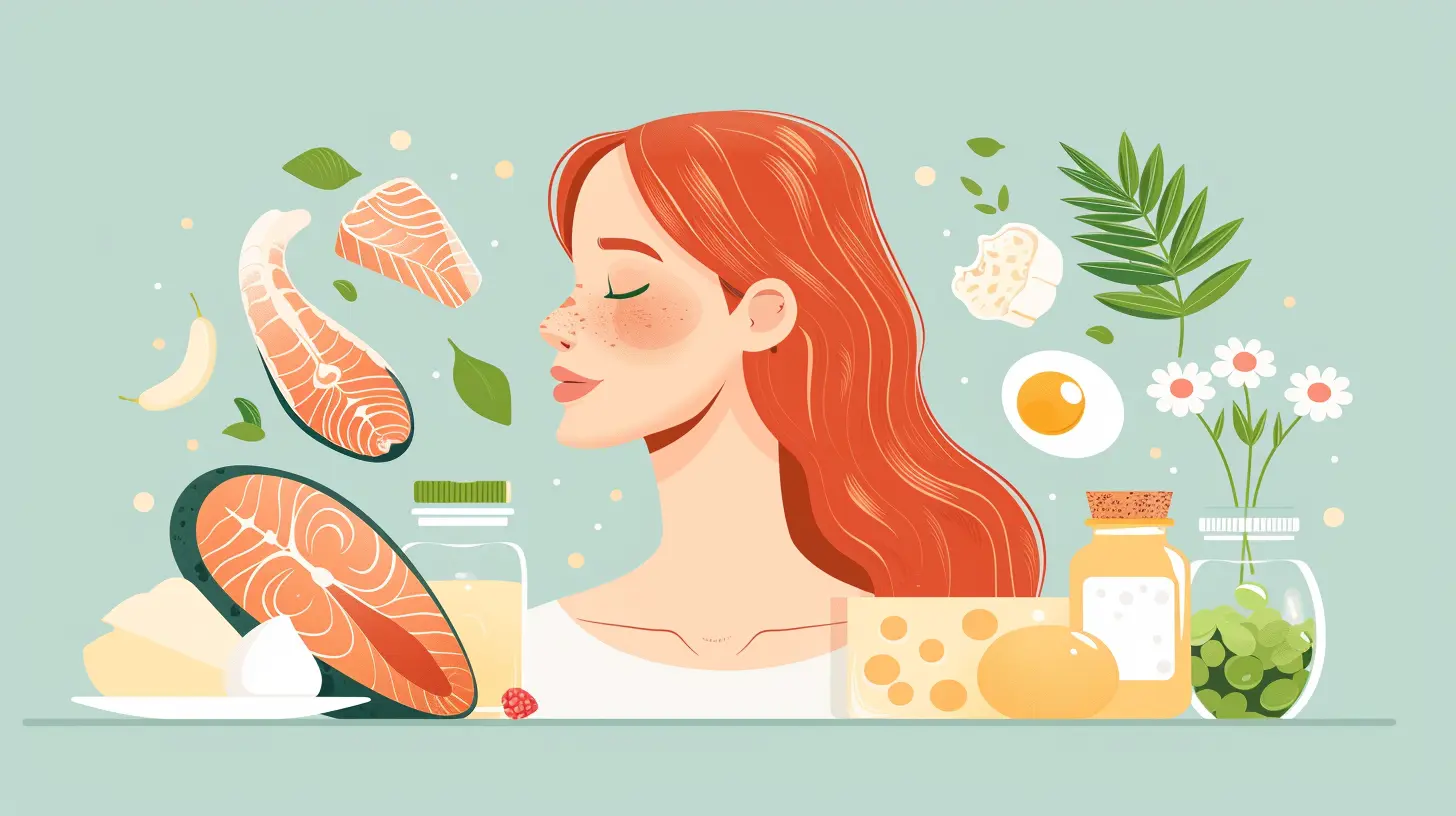
2. Get Friendly With Healthy Fats
Healthy fats are like the BFFs your hormones didn’t know they needed. Cholesterol—often painted as the villain—is actually the starting material for hormone production.Fats support the production of:
- Estrogen
- Progesterone
- Testosterone
- Cortisol (your stress hormone, but only in small, healthy doses)
Try including these fats in your meals:
- Avocados (honestly, they go with everything)
- Extra virgin olive oil
- Coconut oil (moderation is key)
- Omega-3 rich fish (salmon, mackerel, sardines)
- Nuts and seeds (walnuts, flaxseed, chia seeds)
You’re not just feeding yourself—you’re giving your hormones the VIP treatment.
3. Don’t Skip Protein (Your Hormones Need It Too)
Protein is your body’s maintenance crew. It helps build and repair tissues, but it also influences hormone balance by:- Stabilizing blood sugar
- Supporting thyroid function
- Aiding in the production of neurotransmitters like serotonin and dopamine
Aim to include a source of protein with every meal. Some hormone-loving options include:
- Organic eggs
- Wild-caught fish
- Grass-fed beef
- Legumes (if your gut tolerates them)
- Tempeh or tofu (hello, plant-based friends!)
- Bone broth (liquid gold for gut and hormone health)
Pro tip: Don't rely solely on protein bars or shakes. Whole food please, thank you.
4. Say Hello to Fiber (And Regularity)
We don’t talk enough about poop, do we? Well, buckle up because fiber is essential not just for digestion but for hormone health too.Estrogen is processed by the liver and excreted through the digestive system. If your gut isn’t on speaking terms with fiber, estrogen might be reabsorbed into your bloodstream—leading to estrogen dominance. Not cute.
Foods rich in fiber also help:
- Control blood sugar
- Support gut health
- Feed good gut bacteria (which indirectly regulate hormones)
High-fiber foods include:
- Lentils and legumes
- Berries
- Pears (nature’s sweet treat)
- Broccoli and Brussels sprouts
- Chia and flax seeds
- Whole grains
And don’t forget to hydrate. Fiber without water is like trying to slide down a playground slide in sticky jeans. It just doesn’t work.
5. Keep Sugar (The Sneaky Saboteur) in Check
Sugar is the drama queen of the dietary world. It spikes your blood sugar, stresses your adrenal glands, and messes with your insulin—a key player in hormone regulation.Over time, this can lead to insulin resistance, weight gain, fatigue, and a drop in mood (cue the sugar crash).
Some tips:
- Opt for natural sweeteners like honey or maple syrup (sparingly!)
- Choose fruit over fruit juice
- Skip the soda (yes, even diet sodas)
- Read labels—sugar hides in everything from salad dressing to pasta sauce
Trust me, your energy levels and hormones will thank you.
6. Support Your Gut (A Happy Gut = Happy Hormones)
Your gut is like the VIP lounge for hormone production and disposal. A healthy gut helps in:- Absorbing nutrients
- Managing inflammation
- Detoxifying excess hormones
- Producing neurotransmitters (yes, your gut makes serotonin too!)
Show your gut some love by eating:
- Fermented foods: yogurt, kefir, sauerkraut, kimchi
- Prebiotic-rich foods: bananas, onions, garlic, asparagus, leeks
- Bone broth and collagen
- Plenty of fiber (we know this already!)
And please—don’t overuse antibiotics. They're like tossing a grenade into your gut's happy little ecosystem.
7. Don’t Fear Carbs—Just Choose Wisely
Carbs are often demonized, but the truth is, your body and hormones need carbs—just not the processed, sugary kind.Complex carbs help:
- Fuel your thyroid (your metabolism MVP)
- Maintain balanced cortisol levels
- Stabilize blood sugar to prevent mood swings and cravings
Choose these over white bread and sugary cereals:
- Sweet potatoes
- Brown rice
- Quinoa
- Buckwheat
- Rolled oats
- Legumes
Pro tip: Pair your carbs with protein or healthy fats to slow down the glucose release and keep your blood sugar on an even keel.
8. Hydrate Like a Boss
It might not seem glamorous, but hydration is totally underrated. Your cells need water to function, detox, and basically stay alive.Dehydration can stress your adrenals, mess with your mood, and even dull your skin. Plus, water helps with:
- Digesting food
- Transporting nutrients
- Flushing out extra hormones
Aim for 8 cups a day—or more if you’re active. Infuse your water with fruit or herbs if plain water bores you to tears.
9. Don’t Forget Your Micronutrients (Small But Mighty)
Tiny nutrients, massive impact. Some MVPs in hormone health include:- Magnesium: helps reduce PMS symptoms and supports the adrenal glands (sources: spinach, dark chocolate—yes, really).
- Zinc: supports testosterone and immune function (sources: pumpkin seeds, oysters).
- Vitamin D: acts like a hormone and regulates mood and immunity (get sunshine or supplement).
- B Vitamins: needed for energy and neurotransmitter health (sources: whole grains, leafy greens, eggs).
Consider getting a blood test to see where you’re at, then adjust your diet or consider supplements accordingly (with your doc’s OK, of course).
10. Timing Matters Too
Intermittent fasting? Three square meals? Six small meals? There’s no one-size-fits-all, but here’s the scoop:- Don’t skip meals if it leads to blood sugar crashes.
- Try not to eat late at night—your hormones are trying to wind down too.
- Tune in to your own hunger cues.
- A stable eating schedule often helps stabilize hormones.
The goal? Keep your blood sugar and cortisol in check. Roller coasters are great at amusement parks, not in your endocrine system.
Final Thoughts: Chill, Eat Well, Sleep More
Creating a balanced diet for hormone health isn’t about perfection—it’s about intention. Think of every meal as a vote for feeling good.And remember, diet is one piece of the puzzle. Managing stress, getting quality sleep, moving your body, and avoiding chemical disruptors (like BPA and synthetic fragrances) all add up too.
But if you start with food? Trust me, your hormones will throw a party in your honor.
TL;DR Cheat Sheet
Here’s your hormone-healthy meal checklist:✅ Include protein at every meal
✅ Add healthy fats
✅ Choose complex carbs over refined
✅ Load up on veggies and fiber
✅ Reduce refined sugar
✅ Sip water all day
✅ Get your vitamins and minerals
✅ Mind your meal timing
Simple, right? Not always easy, but definitely worth it.
all images in this post were generated using AI tools
Category:
Womens HealthAuthor:

Jackson Mahoney
Discussion
rate this article
1 comments
Dolores Gutierrez
Delicious and balanced meals can work wonders for your hormone health! Remember, it’s all about variety and moderation. Embrace colorful fruits, veggies, and whole grains—your body will thank you! Small changes lead to big victories. Happy nourishing! 🌟🥗
October 23, 2025 at 4:24 AM

Jackson Mahoney
Thank you! Absolutely, variety and moderation are key to supporting hormone health. Embracing colorful foods can make a big difference. Happy nourishing! 🌈

